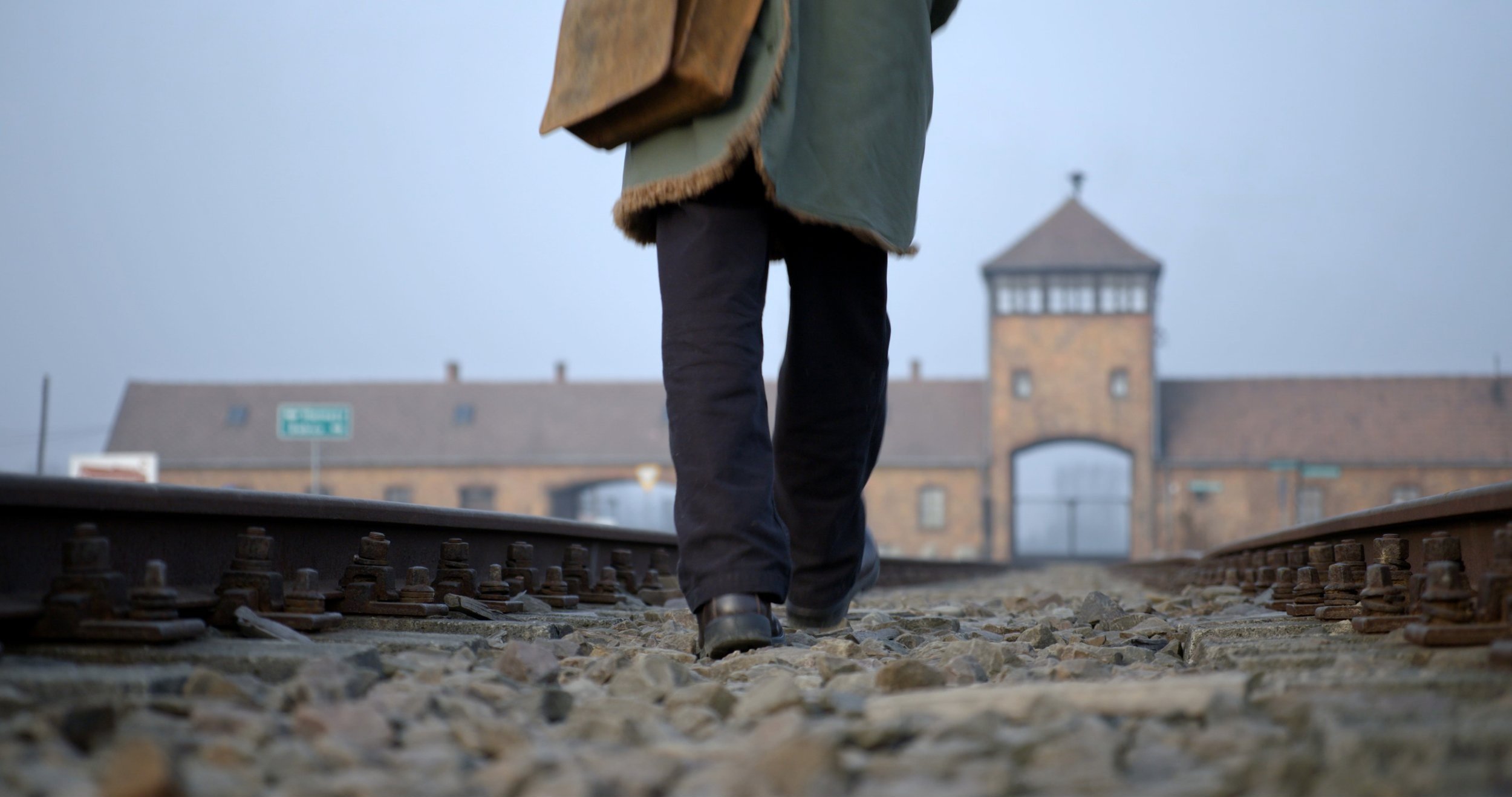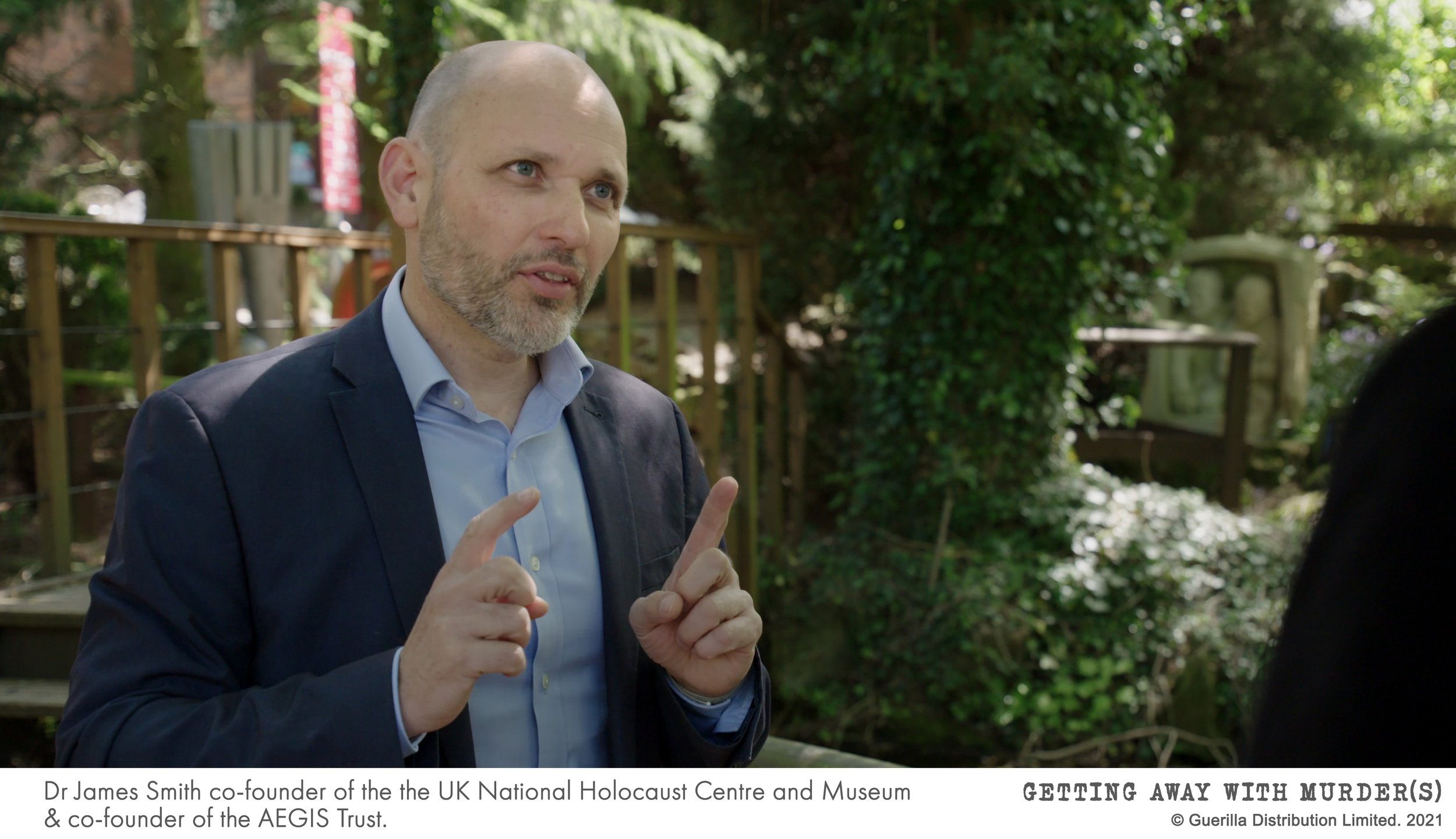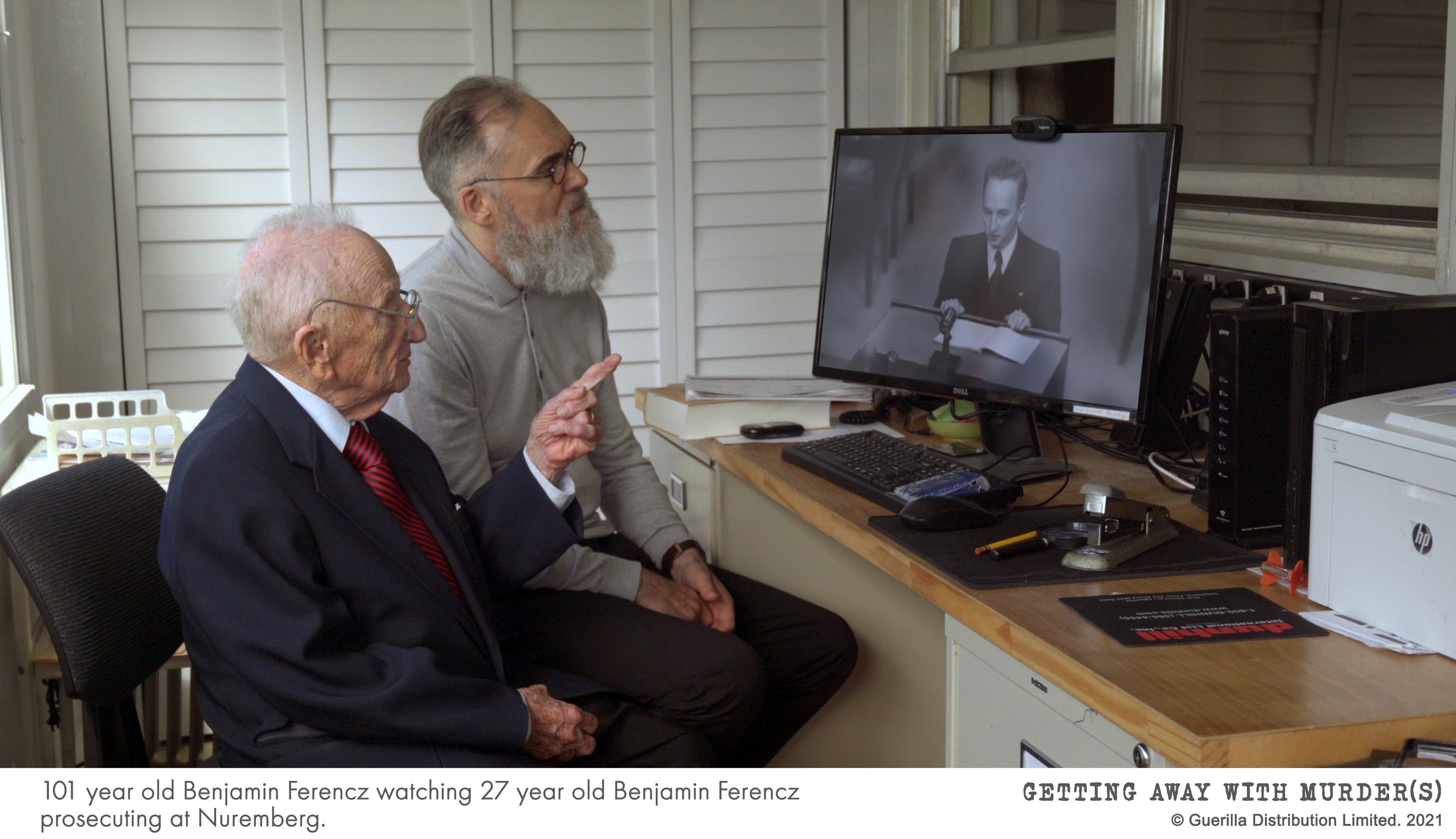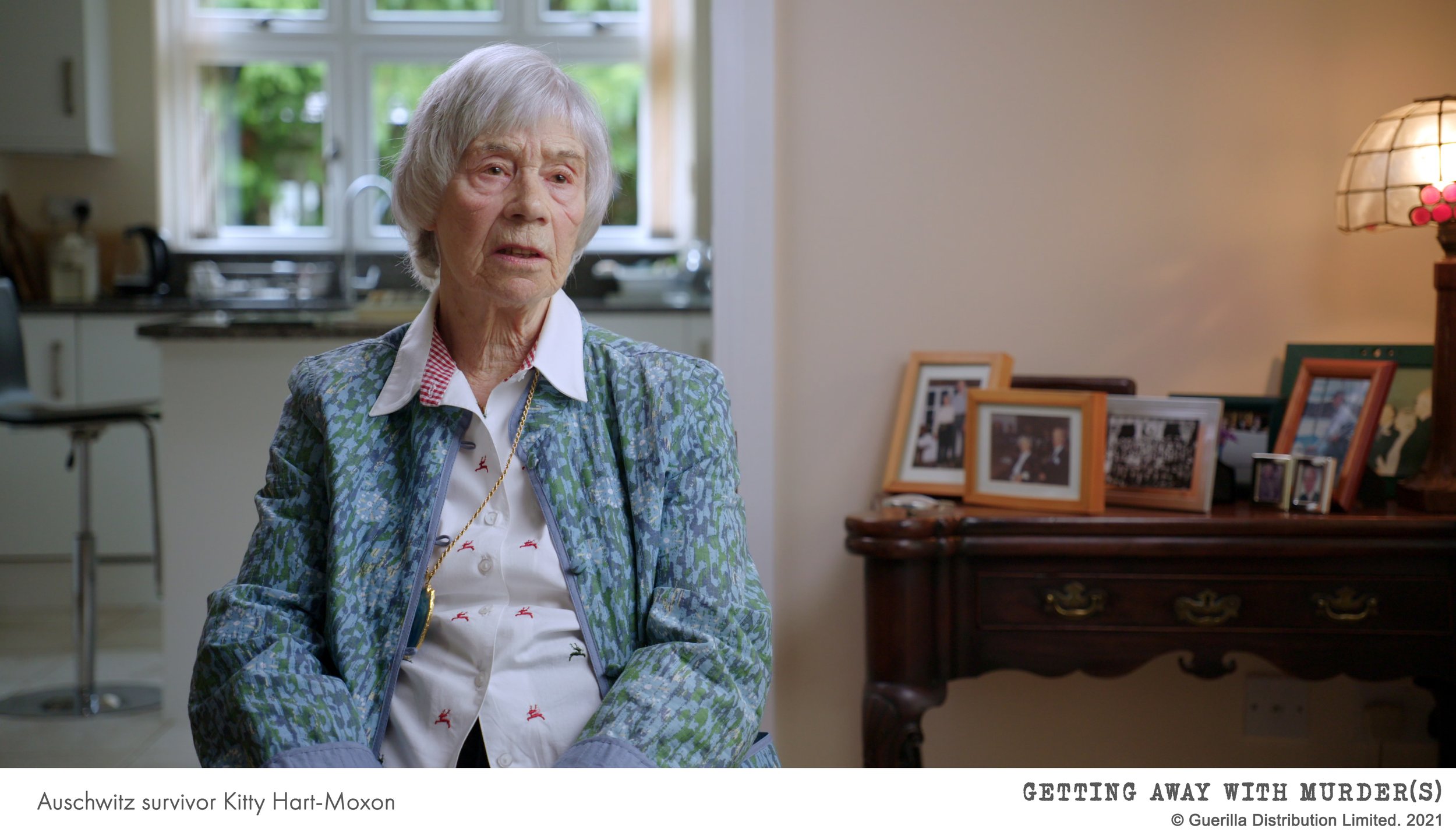
Getting Away With Murder(s)
★★★★★ “A sombre, valuable film.” – Peter Bradshaw, The Guardian
┃
★★★★ “Compelling and provocative filmmaking” – Kevin Maher, The Times
┃
★★★★ “A Powerful and important documentary” Daily Mail
┃
★★★★★ “A sombre, valuable film.” – Peter Bradshaw, The Guardian ┃ ★★★★ “Compelling and provocative filmmaking” – Kevin Maher, The Times ┃ ★★★★ “A Powerful and important documentary” Daily Mail ┃
By May 1944, 10,000 people were being murdered every day in Auschwitz.
Over 8,000 Nazi members of the Waffen-SS were serving at the largest single mass murder site in history. 7,000 of these people survived the War. However, only around 800 of these men and women were ever put on trial and prosecuted for war crimes. Over 6,000 Nazis were left to live out the rest of their lives free of punishment, even though they directly participated in industrial-scale killing. They got away with murder.
This lack of justice has never been covered in a feature documentary…
…until now
ABOUT
Neil Phillips Presents a Guerilla Docs film in association with The Aegis Trust, JoJo Films, Aziz McMahon
Almost 1 million people in 22 countries carried out the unprovoked murder of 11 million innocent men, women and children.
99% of those responsible were never prosecuted; most were never even questioned.
Despite the extensive cinema documentary coverage of the Holocaust to date, not one has explored in any depth the almost total lack of justice, statistically, towards the vast numbers of eagerly participating perpetrators who, at war’s end, simply walked away – untouched by justice. This film addresses this glaring omission.
The Allies knew what their crime was.
The Allies knew where a great many of the murderers could be found – Germany, Austria, Italy, the UK, the USA, Canada, Australia, and numerous countries in South America.
The Allies had an endless wealth of evidence to present to the courts.
The Allies unanimously agreed to prosecute those responsible when they drew up The London Agreement in August 1945.
But, after the late 1940s, these very same Allies did almost nothing.
Why?





















Director David Wilkinson’s sole motivation for making Getting Away With Murder(s) was to find out precisely why so many were actively permitted to get away with their crime(s) – the crime of mass murder on an industrial scale.
A simple question.
He knew long before he began filming that the answer would be more than complex.
Wilkinson’s journey takes him all over the UK, then to Ireland, the USA, the killing fields of Lithuania, Latvia and Czechia, to the infamous deathcamp Auschwitz – Birkenau in Poland, Austria, France and, of course, Germany.
The narrative leads with interviews, including 100-year-old Benjamin B Ferencz who is the last living prosecutor from the Nuremberg War Crimes Trials, Professor Mary Fulbrook, Dr Dan Plesch, Holocaust survivors Kitty Hart-Moxon, Malka Levine, Arek Hersh, Nazi hunter Stephen Ankier, British broadcaster and writer Robin Lustig, German prosecutor Jens Rommel, Holocaust educator and campaigner Philip Rubenstein and Holocaust memorial co-founder and humanitarian campaigner Dr James Smith.
30th September – 1st October 2021 is the 75th Anniversary of the sentencing of the International Military Tribunal at Nuremberg the only Trial to involve all the London Agreement’s joint-signatories. It reached its confident conclusion and meted out the specific justice that mankind had anticipated. However, only a very few of the perpetrators were put on trial. GETTING AWAY WITH MURDER(S) looks at what followed.
The film is unusually long at 175 minutes. But an unresolved truth demands the time needed to tell it.
CONTRIBUTORS
Ben Ferencz and Kitty Hart-Moxon have been in many Holocaust documentaries and even had films made about them.
The others who tell the story, Stephen Ankier, Mary Fulbrook, Winfried Garscha, Malka Levine, Robin Lustig, Dan Plesch, Jens Rommel, Philip Rubenstein and James Smith, are less well known in the world of film & TV but each is a leading expert in their field.
LOCATIONS
Filmed in the UK, Ireland, Poland, Czechia, Lithuania, Latvia, Austria, France, the USA and Germany throughout 2019 and 2020.
MEDIA & PRESS REVIEWS
★★★★★
“A sombre, valuable film.” – Peter Bradshaw
★★★★
“Compelling and provocative filmmaking” – Kevin Maher
★★★★
“extraordinary and beggars belief”
“a thick seam of righteous anger running through it.”
★★★★
“It is a remarkable work of research.” – Carol Allen
★★★★
“The obscene scale is made new.” – Danny Leigh
★★★★
“A Powerful and important documentary”
“a film of such power, potency and importance”
DIRECTOR’S STATEMENT
A Personal Statement from Director David Wilkinson
I have been trying to make GETTING AWAY WITH MURDER(S), either as a film or a TV series, since 2003.
I was baffled as to why it has taken so long to find the funding as, to me, it was essential to know why so very few of the murderers of the Holocaust were ever prosecuted.
I had hoped that others would also wish to know this answer.
When I was distributing his film TALKING SIDES in 2003, I discussed this in great detail with Sir Ronald Harwood as we drove around the country promoting his movie in key cities.
Ronnie wrote over a dozen plays, films, books and articles dealing with the Holocaust and told me that it “informed him”. When I mentioned to him that I was considering making the film, he instructed me to get on with it as he too wanted to know the answer.
It was intended that he be in the film (he later appeared in another documentary of mine), but his contribution in this was sadly not to be.
The film is dedicated to him.
My sole motivation for making GETTING AWAY WITH MURDER(S), was simply to find that answer as to why so many got away with their crime – the crime of mass murder on an industrial scale.
A simple question, you might think.
I knew long before I began filming that the answer(s) would be far from simple.
The film is almost 200 minutes long. The subject is so complex that I found it impossible to fit the answers into a neat 90 or 110 minutes. One of the advantages of not having any funding from a broadcaster means that I was free to explore the subject as I felt in detail.
-
Director/producer/writer David Wilkinson directed, produced, co-wrote, and presented THE FIRST FILM, POSTCARDS FROM THE 48%, and was an executive producer of HOW TO CHANGE THE WORLD. His three-hour Holocaust documentary GETTING AWAY WITH MURDER(S) was voted by the Guardian the No17 Best Film in 2021 in the UK. By default, it was the highest-placed documentary on the list.
He has also produced almost 50 documentaries and dramas. Wilkinson has also distributed 120 films in the UK and Ireland in the cinema, on video/DVD, on television, and online. Since 1998, apart from Alex Gibney’s ZERO DAYS and Lasse Hallström’s HILMA, these have been purposely only British and Irish films.
He started his career as an actor in 1970, and for the next ten years, he acted in over 40 theatre, television and film productions. In 1982, he became, by accident, the first true independent producer to work with the BBC with a film of Virginia Woolf's TO THE LIGHTHOUSE, which starred Sir Kenneth Branagh and was nominated for a BAFTA award.




